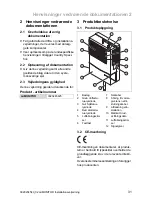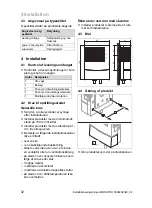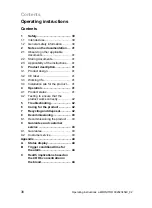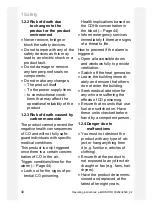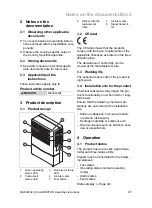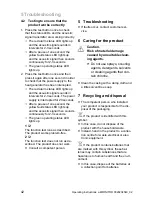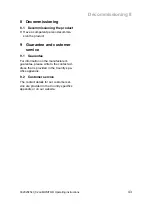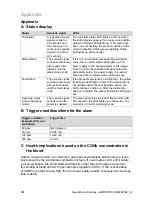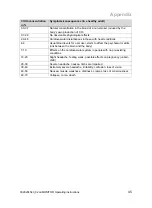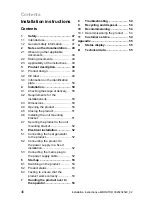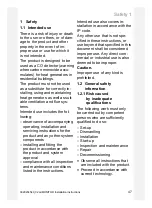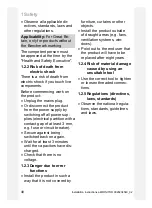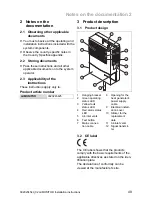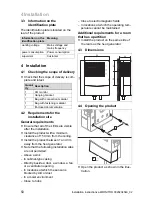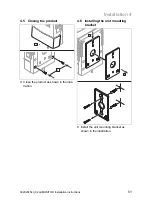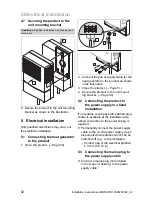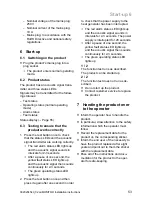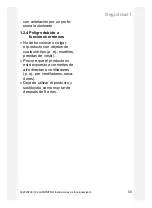
Appendix
44
Operating instructions airMONITOR 0020234540_02
Appendix
A Status display
Status
Acoustic signal
LEDs
Test status
A repeated acoustic
signal sounds for
2-3 seconds and
then changes to a
continuous acoustic
signal for a further
2-3 seconds.
The red alarm status LED lights up first and then
the entire display goes out for one second until the
yellow fault status LED lights up. If the tests have
been run successfully, the product switches to the
normal operating status (green operating status
LED lights up permanently).
Alarm status
The acoustic signal
sounds continuously
with regular inter-
ruptions until the
alarm status ends.
If the CO concentration exceeds the permissible
value, the red alarm status LED lights up. The
power supply to the heat generator is interrupted.
Once the CO concentration falls back below the
permissible value, the power supply is re-estab-
lished and the red alarm status LED goes out.
Fault status
The acoustic signal
sounds continuously
without interruption
until the fault status
ends.
If the product experiences a malfunction, the yellow
fault status LED lights up first. If the malfunction is
not rectified within the specified time period, the
LED continues to light up. After the malfunction
has been rectified, the yellow fault status LED goes
out.
Operating status
(normal operating
mode)
The acoustic signal
sounds once after
power is supplied.
The green operating status LED flashes first. After
120 seconds, the LED lights up continuously. The
product is in normal operating mode
B Trigger conditions/time for the alarm
Trigger condition
(measured CO con-
centration)
Trigger time
30 ppm
Not triggered
50 ppm
60-90 min
100 ppm
10-40 min
330 ppm
≤
3 min
C Health implications based on the COHb concentration in
the blood
Carbon monoxide (CO) is a colourless, odourless and tasteless poisonous gas. It can
be produced by the incomplete combustion of fuels. If you breathe in CO and it enters
your blood stream, the blood binds with this CO rather than with oxygen as normal;
this binding of blood and CO forms carboxyhemoglobin (COHb). If the concentration
of COHb in the blood is too high, this can have negative health consequences and may
lead to death.


